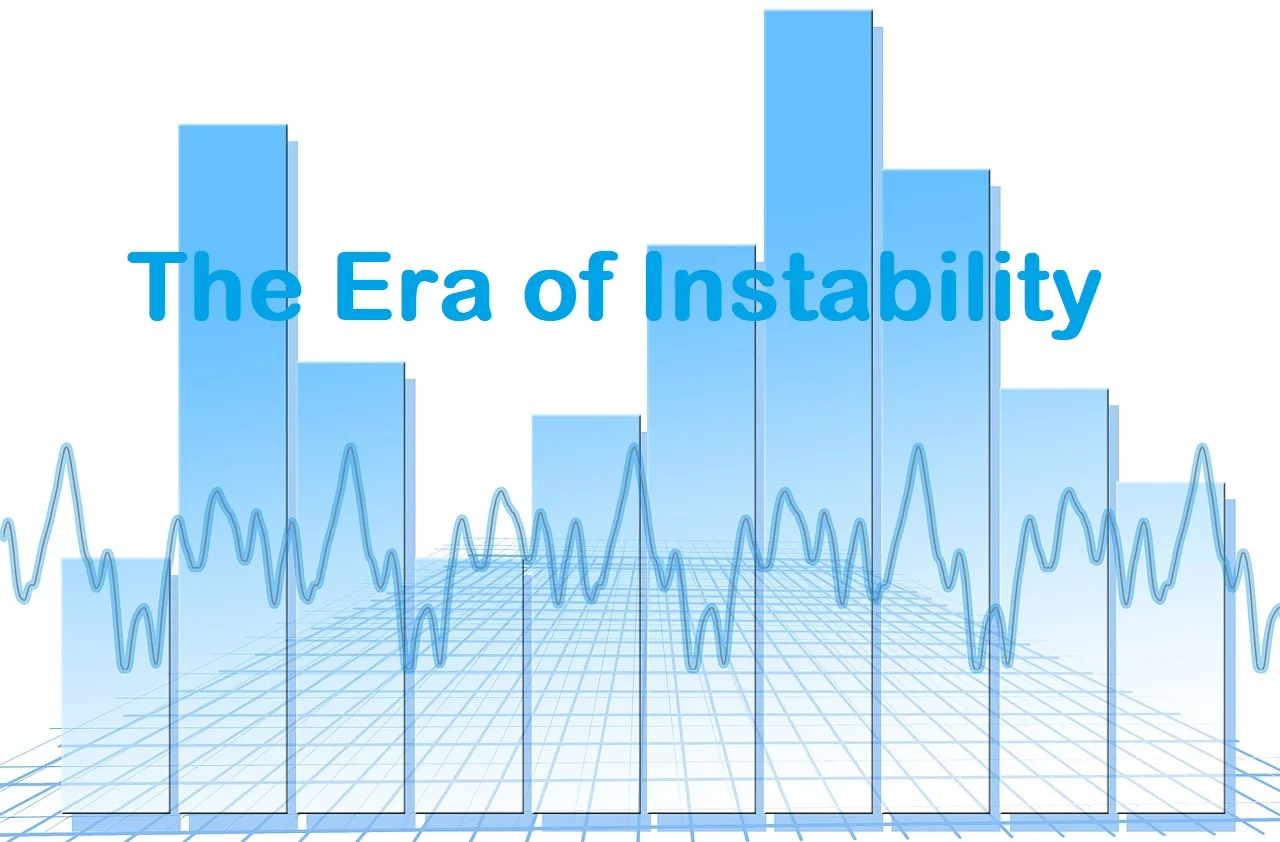It is difficult to predict with certainty how financial markets will perform in the New Year, as they are influenced by a wide range of factors that can change over time. However, International experts say that the global economic challenges that the world will face in 2023 include three powerful forces: geopolitics, the cost of a living crisis caused by inflation, and China’s economic slowdown.
Inflation
Economic activity is slowing and inflation has reached multi-year highs. The International Monetary Fund (IMF) has predicted in its World Economic Outlook report that global economic growth will slow from 6% in 2021 to 3.2% in 2022 and 2.7% in 2023. It was worse only during the 2008 global financial crisis and the acute phase of the coronavirus pandemic. The IMF writes that year-end global inflation will rise to 8.8 percent in 2021, up from 4.7 percent, and will slow to 6.5 percent next year though.
“In a word, the worst is yet to come,” are the words of Pierre-Olivier Gourins, economic adviser and research director of the IMF, in the report.
According to 32% of fund managers surveyed by Bank of America, high inflation is the most significant risk to the economy in 2023.
In particular, it leads to a large-scale tightening of monetary policy by central banks. Since March 2022, the US Federal Reserve has raised the key rate seven times, four of which by 75 basis points (B.P). The European Central Bank raised rates four times, the first time in July (after the dollar equaled the euro for the first time in 20 years), and has been criticized for such delay. The IMF writes that the strength of the dollar against many global currencies puts pressure on local prices in developing countries.
The Financial Times calculated that in March-June, 55 central banks raised interest rates 62 times by at least 50 basis points (B.P), and in July – another 17 times for 50 basis points (B.P) or more. According to Bloomberg, overall, about 90% of central banks in different countries raised key rates this year, with about half – 75 basis points (B.P) hikes, etc.
Geopolitics and COVID
Geopolitics continues to destabilize the global economy. Among other things, this has led to a serious energy crisis in Europe, which is drastically increasing the cost of living and hindering economic activity. Winter 2022 will be bad, but winter 2023 is likely to be even worse, the IMF warns.
Another consequence is the rise in food prices in world markets, despite the grain deal. It is the poorest countries that suffer the most. Russia and Ukraine are agricultural giants and the world’s largest exporters of wheat and sunflower oil. In February-March, world food prices rose sharply on fears that exports from Ukraine would stop. According to the Food and Agriculture Organization of the United Nations (FAO), the food price index, which takes into account 95 quotations for various food commodity groups, rose in March to 159.7 from 135.6 in January 2022. However, then a gradual decline began, and in November the index decreased to 135.7, practically returning to the indicators of the beginning of the year.
However, some analysts see new opportunities in the food crisis. Emma-Lou Montgomery from the British division of the investment company Fidelity International advises to take a closer look at the shares of manufacturers of innovative food products, as well as robotic agricultural equipment. Arnaud Tellier, head of the Asia-Pacific division of BNP Paribas Wealth Management, recalls that there are already quite a few funds focused on sustainable agriculture and food products, as well as exchange-traded funds (ETFs) targeting shares of start-ups developing new agricultural technologies (AgTech).
According to fund managers interviewed by Bank of America, the situation in Ukraine is not the only geopolitical risk. The deterioration of relations between China and Taiwan will no less affect the global economy.
In the meantime, the Chinese economy is suffering from a zero-tolerance policy for COVID and a weakening real estate sector, which accounts for a fifth of the country’s economy. A delay in opening China’s economy could reduce the country’s GDP growth rate in 2023 by a full percentage point from 4.2% and to 2-2.5% from 3.1% this year, according to Oxford Economics. Given the size of China’s economy and its importance to global supply chains, this will certainly have an impact on the global economy, the IMF writes. The zero-tolerance policy has already led workers to riot at Foxconn’s main iPhone assembly plant in Zhengzhou. Due to coronavirus restrictions at the factory, Apple has cut its iPhone 14 release forecast by almost a third.
This is not the only example: since the end of November, several large cities – Urumqi, Beijing, Shanghai, and Guangzhou – have been engulfed in mass protests against the zero-tolerance policy.
“The US election is also a risk to the global economy, said Seth Carpenter, chief international economist at Morgan Stanley. The country has just passed the midterm elections, and it looks like there will be a split in the government (Republicans have regained control of the lower house of Congress, but Democrats have a majority in the Senate). A similar thing happened in 2010 when the US came to a split in the government, which led to a contractionary fiscal policy.”
What Does This Mean For Investors
The worst of inflation may be behind us, a potential recession is what worries fund managers now.
JPMorgan predicts a “moderate recession” in the US in 2023. Bank of America has a similar forecast: 77% of fund managers it polled believe a global recession is imminent, with the eurozone and the UK taking the brunt.
Seth Carpenter, the chief international economist at Morgan Stanley, said the U.S. economy is growing slightly, but Europe and the U.K. are headed for recession. This forces cautious purchases of cyclical assets in the region – metals, copper, the same applies to high-yield bonds and loans, Sheets said. Consumer goods will fall in price, which will reduce inflation, said Carpenter. They believe that in the last 1.5 years, their value depends on global supply chains, which are not yet established but are already improving.
Eurozone businesses show a weaker fall than feared: the composite index of business activity S & P Global Eurozone PMI unexpectedly rose from 47.3 in October to 47.8 in November, Bloomberg notes.
Emerging market assets will be at the forefront of any recovery, where technology and technical equipment might be interesting. Emerging markets in Asia are of interest, Carpenter said, where inflationary pressures have been lower this year and central banks have not been as aggressive.
Markets offer the best potential long-term returns in more than a decade, and current stock valuations are attractive entry points, said David M. Lebowitz, global market strategist at JPMorgan Asset Management.
Final Words:
It is worth noting that investing always carries some level of risk, and it is important to carefully consider your investment objectives and risk tolerance before making any decisions. If you found this article helpful, visit our other blogs to learn more.
 SlushWeb Bringing Facts to Light
SlushWeb Bringing Facts to Light



